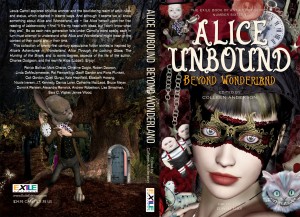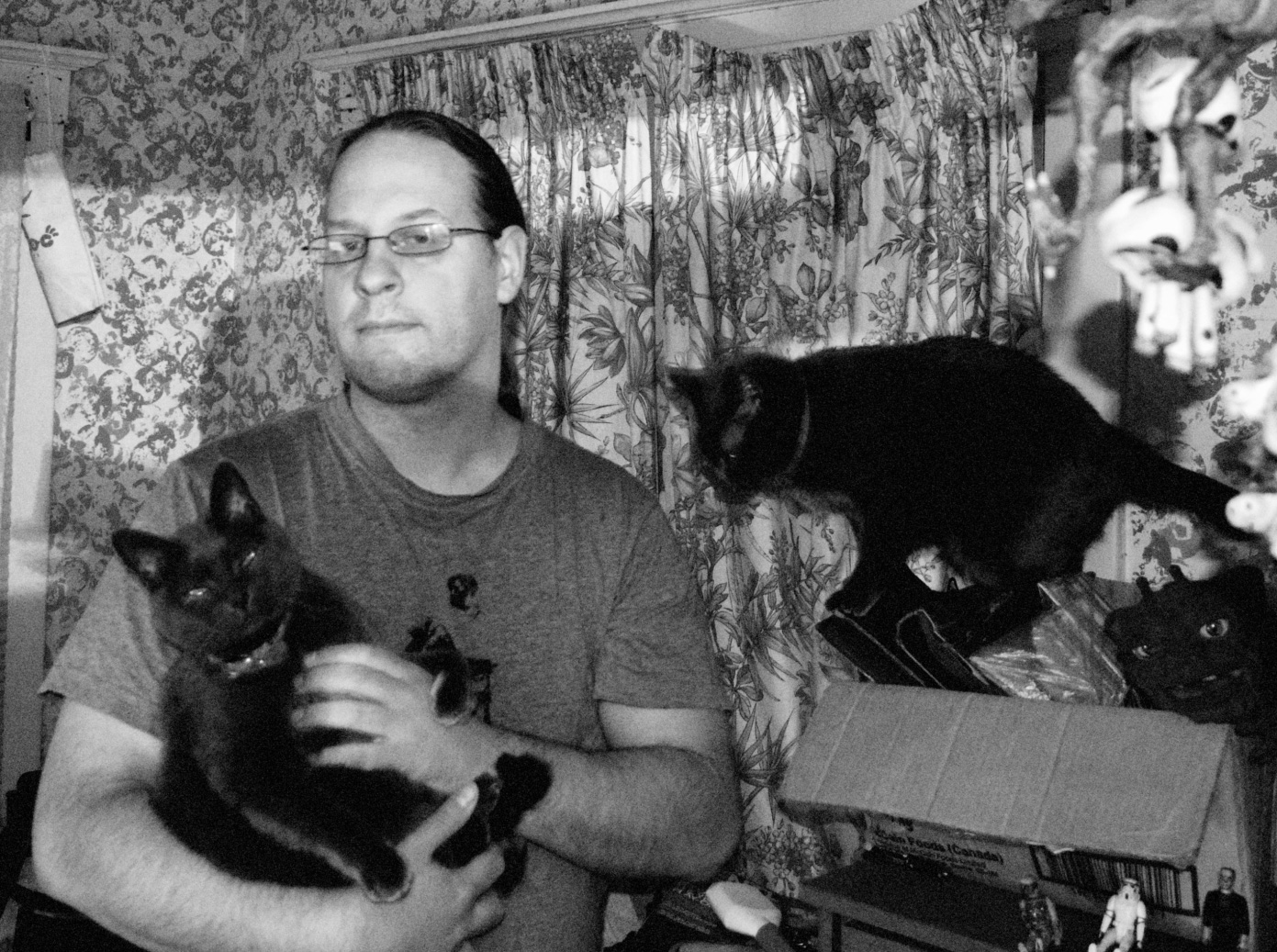This was going to be another post about poems that I’ve sold and in a way it is. But it is  more than that. Last year on March 20th my brother Dennis died unexpectedly, though he had been in ill health for a few years and we had been justifiably worried. Spring when everything is bloom is now inextricably linked with death for me.
more than that. Last year on March 20th my brother Dennis died unexpectedly, though he had been in ill health for a few years and we had been justifiably worried. Spring when everything is bloom is now inextricably linked with death for me.
Dennis was the eldest of four and he was burdened not so much by being the big brother but by the world. He always wanted to make the world a better place, and that probably started with being the support for his siblings, in believing in us and helping hold us together. We four were weighted by the way our narcissistic parents had used us, who had planted seeds of doubt, self-loathing, fear and sadness deep within us. We battled or succumbed in different ways. Our parents’ needs drew the four of us together. We certainly weren’t always united, and we could drive each other crazy but we have always remained close.
That mentally unhealthy upbringing affected everyone. Not only did Dennis feel he had to be there for us, he had to also be there for the world. If he wasn’t giving and contributing to the betterment of society and humankind, he didn’t feel his life was worth living. I worried at different times that he would kill himself if he couldn’t find this deep purpose. He never had a hobby. Perhaps if there was any hobby, it was Dennis’s love of animals, something we all shared. But he could never just let go and ease himself into something mindless, something to let his mind rest for a bit and regenerate.
It is what killed him. He literally could never sleep. His body forgot how to turn off, even with machines and medicines. He could never shut his brain down and stop thinking of ways to make the world better. Dennis never finished high school. In some ways he was too smart for it and I’m sure desperately unhappy, searching for a sense of place. I doubt any of us were happy in high school though I think if you look back there were probably more searching lost teenagers than there were contented ones.
In seeking approval in my mother’s eyes, Dennis strove to do more. He was successful in  provincial politics. He became a Thai Consul, he worked on senate reform, and was Edmonton’s police commissioner. He worked in other parts of the world, trying to assist various cities and countries with government. And he worked at advocating for mental health, something that we had never really had in our family. He was given an honorary doctorate for his work. Dennis contributed a lot to mental health and created the Chimo Project, which brought pet assisted therapy to Alberta long before experts were recognizing the benefits of animal-human interactions and healing.
provincial politics. He became a Thai Consul, he worked on senate reform, and was Edmonton’s police commissioner. He worked in other parts of the world, trying to assist various cities and countries with government. And he worked at advocating for mental health, something that we had never really had in our family. He was given an honorary doctorate for his work. Dennis contributed a lot to mental health and created the Chimo Project, which brought pet assisted therapy to Alberta long before experts were recognizing the benefits of animal-human interactions and healing.
I could go on about my deep-thinking brother, who was perhaps only second to my mother in stubbornness about their own health. He didn’t believe he could be helped, he was leery of psychologists/counsellors/psychiatrists and thought they would bleed his secrets to the world. He resisted seeking treatment. Dennis always tried to see from another person’s point of view, and it was as his body was deteriorating that I saw a darker side come out. I had rarely seen him angry until those later years, where that dark mood and glumness was troublesome and he became more fatalistic. He seemed to believe less in democracy as all the ills of the world ate at him.

This bee, here.
Yet, he still cared about us and we, about him. Last March 20th was the first day of spring. I found a bee on the steps staggering about, having awakened too early to a chilly day. I rescued it and brought it sugar water at about the same time as my brother was dying in another province. I like to think that as the weight of the world and his burdened brain wore down, that his spirit lifted free and ended up in that bee, small and seeking nectar and the warmth of a new day. I like to think that he was finally able to fly away from worry and sadness.
It does not feel like a year. I still cry every week, missing him. And this is about poetry. In trying to move through my grief, to not cry constantly, I immersed myself in poetry. I couldn’t write longer works because of my sorrow, so poetry it was. I started exploring different forms, where structure and length occupied my mind with these word puzzles. In a way, I became obsessed and have written more poems in a year than probably many years combined.
That obsession hasn’t stopped. I’m still exploring forms and writing poems. But my many many poems that have sat for years have had a scrubbing. I’ve not only written new works and explored different themes but I’ve truly looked deeply at my old poems, asking myself, what does that mean? Some of these haven’t sold in over 20 years. In some cases, I set them aside, feeling something wasn’t right—the proof was in no sales. With other poems, I would send them out, not always every year.
Now, with this deep cleansing I have rewritten quite a few poems and have submitted them resurrected and they’re selling. In this way, every time a poem is sold, it reminds me of how my brother believed in me and how, even though he is no longer physically here, he continues to inspire me. I know that if he were to read this, he would kind go “Huhmp!” raise his eyebrows and give me a look.
I think of my brother every time I sell a poem. The ones sold in the past month (the ones with links are already published) and with different release dates are:
- “Monster” in Breath and Shadow
- “Telltale Moon” in Dreams and Nightmares
- “masquerade” in OnSpec
- An untitled hay(na)ku “luring” and my first haibun “Sacrifice” in Scifaikuest
- “Three’s a Charm” in Songs of Eretz Poetry
- “Spinning Wheel,” “Broken Words” and “Penned By My Hand” in Cascadia Subduction Zone
- “Hacker Halloween” in Polar Borealis #14
- “Family Dinner, Prince George” and “Sweat Lodge” in Transition magazine
- “Hand of Fate” in Cosmic Horror Monthly
- “Widow’s Lament” in The Weird and the Whatnot
- “To the Core” in TERSE Journal
To my brother, I thank you. I miss you and I still wish you were here.

 My guest today is Michelle Scalise. Her poetry punches hard and all the more wrenching for its reality.
My guest today is Michelle Scalise. Her poetry punches hard and all the more wrenching for its reality. My latest collection, DRAGONFLY AND SONGS OF MOURNING (LVP Publications 2019) is about the death of my husband, novelist Tom Piccirilli, of cancer. Most poets who write in the horror genre use death a lot but this is personal. It was also the only work I’ve ever done that was painful to write. My last collection THE MANUFACTURER OF SORROW (Eldritch Press) doesn’t have a theme. I am always writing about scarred childhoods and turning the image of mothers into monsters. That’s my way of fighting back at my past. Both of my short story collections also contain poems.
My latest collection, DRAGONFLY AND SONGS OF MOURNING (LVP Publications 2019) is about the death of my husband, novelist Tom Piccirilli, of cancer. Most poets who write in the horror genre use death a lot but this is personal. It was also the only work I’ve ever done that was painful to write. My last collection THE MANUFACTURER OF SORROW (Eldritch Press) doesn’t have a theme. I am always writing about scarred childhoods and turning the image of mothers into monsters. That’s my way of fighting back at my past. Both of my short story collections also contain poems. Horror, Darker Side, Mortis Operendi I, Dark Arts, The Big Book of Erotic Ghost Stories, Best Women’s Erotica, and such magazines as Cemetery Dance, Crimewave, Space and Time, and Dark Discoveries. She was nominated for the 2010 Spectrum Award, which honors outstanding works of fantasy and horror that include positive gay characters. Her poetry has been nominated for the Elgin Award and the Rhysling Award. Her fiction has received honorable mention in Year’s Best Fantasy and Horror. Her fiction collection, Collective Suicide, was published by Crossroad Press in 2012. In 2014, Eldritch Press published a collection of her poetry, The Manufacturer of Sorrow in paperback and ebook. It became a bestseller in the women writers category on Amazon. In May of 2019, her latest collection of poetry, Dragonfly and Other Songs of Mourning, was published by Lycan Valley Press. It has made the preliminary ballet for the Bram Stoker Award. Michelle is an active member of the HWA and the SFPA.
Horror, Darker Side, Mortis Operendi I, Dark Arts, The Big Book of Erotic Ghost Stories, Best Women’s Erotica, and such magazines as Cemetery Dance, Crimewave, Space and Time, and Dark Discoveries. She was nominated for the 2010 Spectrum Award, which honors outstanding works of fantasy and horror that include positive gay characters. Her poetry has been nominated for the Elgin Award and the Rhysling Award. Her fiction has received honorable mention in Year’s Best Fantasy and Horror. Her fiction collection, Collective Suicide, was published by Crossroad Press in 2012. In 2014, Eldritch Press published a collection of her poetry, The Manufacturer of Sorrow in paperback and ebook. It became a bestseller in the women writers category on Amazon. In May of 2019, her latest collection of poetry, Dragonfly and Other Songs of Mourning, was published by Lycan Valley Press. It has made the preliminary ballet for the Bram Stoker Award. Michelle is an active member of the HWA and the SFPA. Sometimes life is hills or valleys, and sometimes it dives so deep into the underlayer that you end up in orbit without a safety suit. To say I will be happy to see the end of the second decade of the third millennium is an understatement. Fair warning: this will be a long post.
Sometimes life is hills or valleys, and sometimes it dives so deep into the underlayer that you end up in orbit without a safety suit. To say I will be happy to see the end of the second decade of the third millennium is an understatement. Fair warning: this will be a long post.
 I had barely written in 2018 and the weight of grief made it extremely difficult to think of writing. I applied to the Horror Writers Association for the Scholarship from Hell, a scholarship to attend the Stokercon convention and masterclass workshops, as well as free flight and accommodation. I didn’t win the scholarship but was awarded a runner-up scholarship that included free attendance and master classes. I desperately needed the energy of writers to inspire me.
I had barely written in 2018 and the weight of grief made it extremely difficult to think of writing. I applied to the Horror Writers Association for the Scholarship from Hell, a scholarship to attend the Stokercon convention and masterclass workshops, as well as free flight and accommodation. I didn’t win the scholarship but was awarded a runner-up scholarship that included free attendance and master classes. I desperately needed the energy of writers to inspire me.
 Poetry
Poetry














 some dark recess of my imagination I don’t have full conscious access to, I suppose.
some dark recess of my imagination I don’t have full conscious access to, I suppose. I’ve wanted to write about a drowned village for years. My late grandfather, Alfred Joanisse, grew up in le Chenail, a village by the Ottawa River that was submerged (relocated for the most part) when the government built the Carillon dam near Hawkesbury. I grew up hearing stories about the village – he even brought me to the remaining stretch of land on several occasions and I still visit when I can–and le Chenail has haunted my imaginative landscape ever since. I tried writing about it repeatedly, but the emotional core of the story eluded me. After grandpa passed I could never quite manage to write about him, or his village. It felt too real, too close. Eventually, I decided to try my hand at the story again (it’s been five years since his death). This time everything clicked. The village here isn’t exactly le Chenail, it’s a composite of that and some of the Lost Villages of the Saint Lawrence River. The people here too are composites, drawn up from family, friends, and some of the elderly I’ve done volunteer work with over the years. It might just be my favourite thing I’ve written so far.
I’ve wanted to write about a drowned village for years. My late grandfather, Alfred Joanisse, grew up in le Chenail, a village by the Ottawa River that was submerged (relocated for the most part) when the government built the Carillon dam near Hawkesbury. I grew up hearing stories about the village – he even brought me to the remaining stretch of land on several occasions and I still visit when I can–and le Chenail has haunted my imaginative landscape ever since. I tried writing about it repeatedly, but the emotional core of the story eluded me. After grandpa passed I could never quite manage to write about him, or his village. It felt too real, too close. Eventually, I decided to try my hand at the story again (it’s been five years since his death). This time everything clicked. The village here isn’t exactly le Chenail, it’s a composite of that and some of the Lost Villages of the Saint Lawrence River. The people here too are composites, drawn up from family, friends, and some of the elderly I’ve done volunteer work with over the years. It might just be my favourite thing I’ve written so far.




